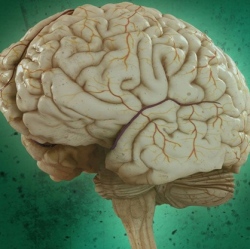
About 40 percent of people fail to respond to the first-line treatment of antidepressants. What to do? The answer to date has often been more and different drugs. But transcranial magnetic stimulation (TMS) has been receiving more attention as a possible treatment for these stubborn cases of depression.
In 2008, the FDA approved TMS for this purpose. Data since that point has been promising, but questions remain: How does it compare to antidepressant drugs? Is it cost-effective?
Research presented today (May 6) at the American Psychiatric Association’s annual meeting in New York suggests that the technique is perhaps better than previously thought. In the study, the researchers compared two groups: those who had received TMS after failing to respond to drugs, and those who were given new antidepressants after not getting better on prior meds.
The finding: 53 percent of those receiving TMS had no or mild depression after six weeks of treatment, compared with 38 percent taking a new or augmented type of antidepressant.
